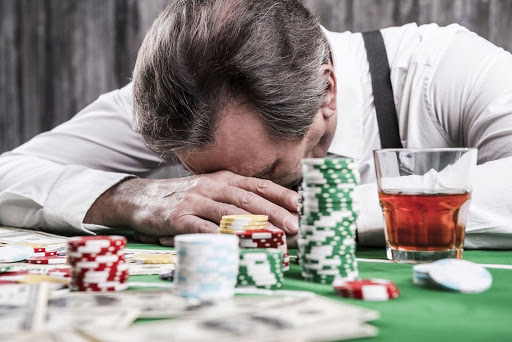Gambling is a common activity and most individuals who engage in this behaviour do so
without causing harm to themselves or others. However for some, gambling behaviours
can vary within a lifetime, moving back and forth between non-problematic to severely
problematic.
Gambling can be looked at in terms of a continuum of use, similar to alcohol and substance use, ranging from not gambling, gambling responsibly, some problems with gambling that carry a moderate risk of consequences, gambling thatcauses some serious social harm (problem gambling) to the most problematic form – pathological gambling.
At this stage, individuals engage in “persistent and recurrent maladaptive patterns of gambling behaviour that disrupt personal, family or vocational pursuits.” As gambling behaviour becomes more problematic, so does the severity of the mental and physical health impacts as well as financial effects.
Mental Health
People experiencing problems with gambling are more likely to have other mental
health concerns. There is evidence that individuals who have developed problem
gambling will have a higher incidence of mental health illnesses, such as depression,
anxiety, attention deficit disorders and personality disorders.
At the pathological gambling stage, the most severe form of problem gambling, the
individual may engage in five or more of the following behaviours:
1. Preoccupied with gambling (e.g. preoccupied with reliving past gambling
experiences, handicapping or planning the next venture, or thinking of ways to
get money with which to gamble)
2. Needs to gamble with increasing amounts of money in order to achieve the
desired excitement
3. Has repeated unsuccessful efforts to control, cut back, or stop gambling
4. Is restless or irritable when attempting to cut down or stop gambling
5. Gambles as a way of escaping from problems or of relieving a dysphoric mood
(e.g. feelings of helplessness, guilt, anxiety, depression)
6. After losing money gambling, often returns another day to get even (“chasing”
one’s losses)
7. Lies to family members, therapist, or others to conceal the extent of involvement
with gambling
8. Has committed illegal acts such as forgery, fraud, theft, or embezzlement to
finance gambling
9. Has jeopardized or lost a significant relationship, job, or educational or career
opportunity because of gambling
10.Relies on others to provide money to relieve a desperate financial situation
caused by gambling




